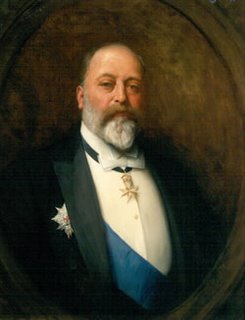
The death of King Edward VII on May 6, 1910, marked the proper end of Edwardian era. Society marched gaily on until the summer of 1914, but no longer was there a charismatic, pleasure-loving, and cosmopolitan monarch to look to for amusement, fashion, sport, and manners. Though most of the king’s set were just as middle-aged and elderly as he was, Edward VII’s appetites still set the tone, and King George V and Queen Mary’s firm adherence to the quiet life sent ripples on unease throughout high society. The splintering of cliques that had begun well into Edward’s reign now bore fruit since the new king and queen were alleged to detest Americans, to despise the raffish crowd the dead king collected around him, the bed-hopping, and the indiscriminate mingling of wealth with blue blood. According to The Edwardian Daughter, the memoir written by Sonia Cubitt (née Keppel–and HRH the Duchess of Cornwall’s grandmother), Mrs. George Keppel lost no time in packing up the family for a long trip away from England now that her lover was dead. Court mourning was instituted, and though many hesitated to throw themselves back into the London Season the king’s death so abruptly interrupted, the smart set commemorated their deceased king and social leader with the infamous “black Ascot.”
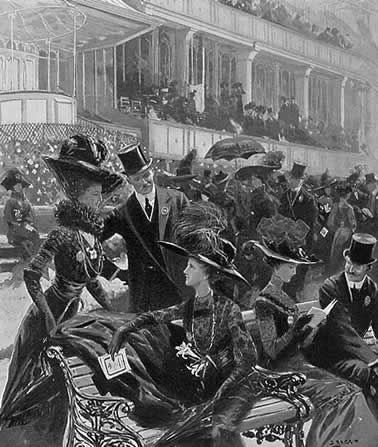

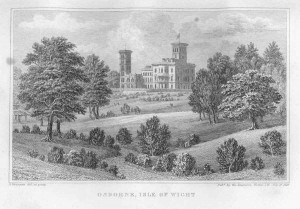
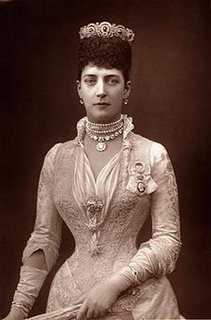
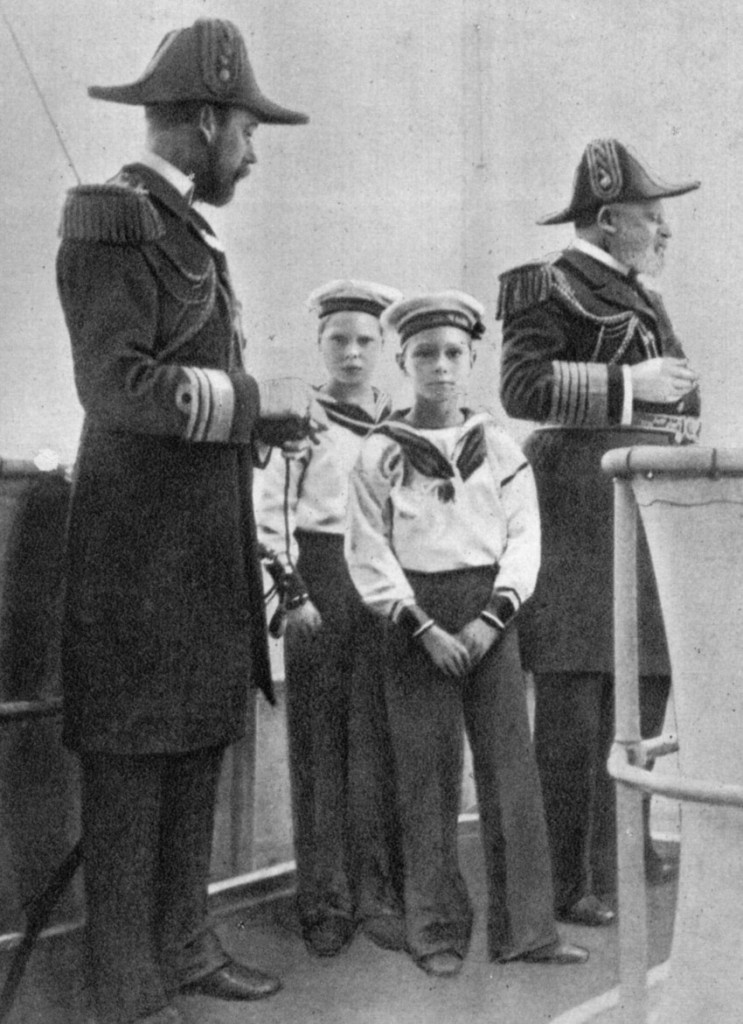

Always wondered if the present Prince Charles is not really RELATED to the present Duchess…for real. Sort of sad really that they loved each other long ago and then duty to crown and country had to prevail…till they were both old. Bless all those who suffered as a result…. ALL of them.
Nope. So far as historians go, Edward VII had no children outside of his marriage (only two rumored–George Cornwallis-West and Olga de Meyer). Charles and Camilla are only linked by their great-great…whatever grandfather and grandmother.
There must have been an ambivalence in the public eye about the reign and then death of King Edward VII. People who were used to Victorian standards might have been a bit shocked by Edward’s behaviour and values. And in any case, he was already so elderly, he reigned for only a short time.
So I am quite happy to accept that the general population (not his party-mates) loved him, but by 1910 the party was all over..
According to Virginia Cowles bio, Edward VII had been chronically ill from about 1907 or 1908, and indeed, Daisy, Princess of Pless had to save him from an almost fatal coughing fit sometime in 1908/09. There was real and abiding grief, but he died right in the thick of a testy political battle (Asquith & Lloyd George’s social reforms+dreadnoughts) and his death threw everything off center. And don’t forget that his scandals of the 1890s began to sour the middle classes on him, and many mistrusted how he would reign after Victoria’s death. Edward VII did much to rebuild his reputation, and he was deeply loved by those at the top and those at the bottom, but society as a whole had changed a lot by 1910. I think George V was revered more and respected because of his level-headedness.
So stylish.
Did you ever write a post about Mrs. George Keppel? Has there ever been a king of England who DIDN’T have a regular mistress?
Oddly enough, I don’t think I have!
George III was faithful to his wife, I think.
So much has been said about his social life and little of his reign. From what I gather, it wasn’t all that bad though a wee late in coming.
Oh, it wasn’t bad! It’s just that the 19th century saw an erosion of the direct influence of the British monarchy, and when Edward VII took the throne, it was as the lower classes, ethnic Britons, and colonized peoples began to agitate for change, empowerment, and agency. Edward VII did much for international relations during his short reign, but his social status and probably his age (and dissipated lifestyle) kept him from taking a vigorous role in shaping domestic policy and English social life.
I didn’t realize the Edwardian era was such a short period, given that Queen Victoria died in 1901. Such a short reign.
Nine years! I often wonder how he would have ruled during WWI and its aftermath. Though, perhaps George V’s staidness and the promise of his young adult children kept England from dissolving into socialism and overthrowing the monarchy, whereas Edward VII might have been viewed as too old and out of touch.